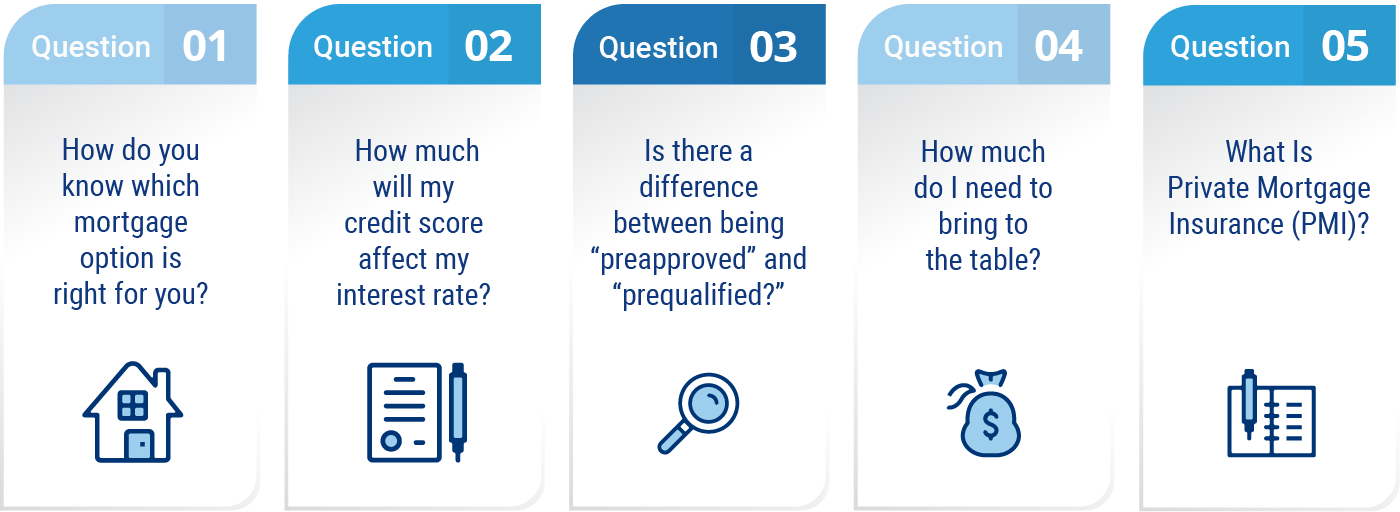Got Mortgage Questions? We’ve Got Answers.

Most people know a mortgage is some kind of loan thingy that a bank gives you to buy a house, and in return you have to give them monthly payments for the rest of your life. One of the biggest issues with finding the right mortgage is that they’re not that easy to understand.
It’s pretty important that you know all about the loan thingy before you sign up for one. That’s why we enlisted David Goldhirsh, vice president of LeaderOne Financial, a Chicago mortgage banker with over 15 years of experience. But you don't need an expert to tell you that you should always stay protected with an affordable home insurance policy.
David will help us to dissect the top mortgage questions hopeful homebuyers like you are asking. So we can all stop saying “loan thingy,” and know exactly what it is and how to go about finding the RIGHT one.
Now, let’s A some Q’s, shall we?

Question 1: How do you know which mortgage option is right for you?
Before you dive into Google to self-diagnose which option is right for you, it’s better to really have a good ol’ fashioned sit-down with a qualified mortgage banker instead. This can be a tricky process, and ideal options will depend on things unique to you.
Option-changing factors can include the following:
- Financial goals
- Price range
- Current interest rates
- Budget requirements
- Mortgage estimates
Bottom line: A banker will be able to boil down and explain the options that will be the best fit, whereas Google will most likely drop heaps of info in your lap for you to sift through.
Question 2: How much will my credit score affect my interest rate?
Short answer: It depends on your loan… and credit.
Longer answer: Common sense rules – if you have a higher score, you’ll get a lower interest rate.
Loans like Fannie Mae and Freddie Mac are score-sensitive, which means the lower your credit score, the higher your interest rate and mortgage insurance premiums. The opposite is true if you have a higher credit score.
Other loans – like FHA loans – could care less about your score and hand out the same cookie-cutter rates to everyone.
Bottom line: Credit scores matter, but not for every loan.
Question 3: Is there a difference between being “preapproved” and “prequalified?”
We wouldn’t “A” this “Q” if the answer were no.
Preapproved: This means that an underwriter has already done their homework on you and likes what they see. They’ve taken a look at your income documents, proof of funds to close, job information, and credit report and they’re ready to hand you a rose, “Bachelor” style.
Prequalified: It’s like getting the silver instead of the gold. Maybe a banker has done all the steps they would have done for a preapproval, but the underwriter never reviewed the information. No underwriter approval means no rose, and no knowing whether if you made an offer on a home, it’d be yours.
Bottom line: Live by the gold standard and get preapproved. This 100% guarantees you can close on your home, and won’t have any headaches or delays while doing so.
Question 4: How much do I need to bring to the table?
It depends, but most likely you’ll need more than your down payment to close.
How much money you’ll need to put in your hypothetical handcuffed briefcase will depend on the rest of the deal you strike, mortgage option and all. Lucky for you, your banker can estimate this amount once you’re preapproved and the purchase price is set.
Bottom line: Talk to your banker about the deets of your deal, so you know what to bring to the table the day you sign on the dotted line.
Question 5: What Is private mortgage insurance (PMI)?
Think of PMI as a money cushion for your lender if you can’t repay them and they can’t get their money back in foreclosure. PMI is required with some loans, depending on what you qualify for. The most important reason to know if your loan requires PMI is that it will increase your monthly payment.
Bottom line: Talk to your banker about what you qualify for and ask about PMI so there are no unwanted surprises at the closing table.
Time to “A” Your Way to an Easier Home-Buying Experience
Mortgages are confusing, seriously, but with these simple answers and the strong recommendation of finding a top-notch mortgage banker, this process could be easier than you think.
Huge thanks to David Goldhirsh from LeaderOne Financial for being our qualified expert and answering our mortgage questions!
Happy mortgage applying and home buying, and make sure you're covered with an affordable home insurance policy.
